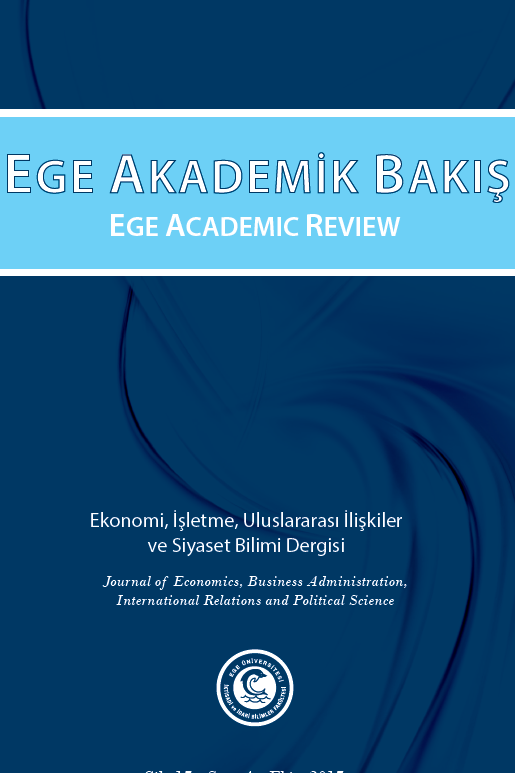On the (In)sensitivity of a Stock Market to Terrorism: Turkish Experience
This paper investigates the impact of terrorism thattook place within Turkish borders on the Turkishstock market by utilizing the daily time series ofterror attacks and the benchmark stock indexbetween 2000 and 2015. The terror data taken fromthe Global Terrorism Database distinguishes itself inseveral aspects, including location, attack types, thenumber of attacks, the number of victims killed, andthe number of victims injured. It is shown that thestock market became desensitized to terror attacksover time. The sensitivity that is observed for theperiod of 2000-2004 is lost for the remaining periodof 2004-2015. The sensitivity period includes the2001 financial crisis of Turkey after which variousfinancial reforms were implemented. Hence, the lostsensitivity over the 2004-2015 period is consideredto be associated with the changing state of thefinancial system. Moreover, it is found that thelocation of an attack is unimportant for the stockmarket. However, when attacks are classified intotypes based on tactics used during the attack, it isshown that the stock market is negatively sensitiveto terrorism only when the attack type is facilities/infrastructure. Since the conclusions are based onTurkey, they might have broader implications for developing countries.
___
- Brounen, D. and Derwall, J. (2010) “The Impact of Terrorist Attacks on International Stock Markets” European Financial Management, 16(4):585-598.
- Brown, S. J., & Warner, J. B. (1980) “Measuring security price performance” Journal of financial economics, 8(3):205-258.
- Brown, S. J. ve Warner, J.B. (1985) “Using Daily Stock Returns: The Case of Event Studies” Journal of Financial Economics, 14(1):3-31.
- Buesa, M., Valiño, A., Heijs, J., Baumert, T., & Gomez, J. G. (2007) “The Economic Cost of March 11: Measuring the direct economic cost of the terrorist attack on March 11, 2004 in Madrid” Terrorism and Political Violence, 19(4):489-509.
- Chen, A.H. and Siems, T.F. (2004) “The Effects of Terrorism on Global Capital Markets” European Journal of Political Economy, 20(2):349-366.
- Crain, N. V., & Crain, W. M. (2006) “Terrorized economies” Public Choice, 128(1-2):317-349.
- Drakos, K. (2010) “Terrorism activity, investor sentiment, and stock returns” Review of Financial Economics, 19(3):128-135.
- Drakos, K. and Kutan, A. M. (2003) “Regional effects of terrorism on tourism in three Mediterranean countries” Journal of Conflict Resolution, 47(5):621-641.
- Dravid, A. R. (1987) “A Note on the Behavior of Stock Returns around Ex-Dates of Stock Distributions” The Journal of Finance, 42(1):163-168.
- Eckstein, Z. and Tsiddon, D. (2004) “Macroeconomic Consequences of Terror: Theory and the Case of Israel” Journal of Monetary Economics, 51(5):971-1002.
- Eldor, R. and Melnick, R. (2004) “Financial Markets and Terrorism” European Journal of Political Economy, 20(2):367-386.
- Eldor, R. R., Hauser, S., Kroll, Y., and Shoukair, S. (2012) “Financial markets and terrorism: The perspective of the two sides of the conflict” Journal of Business Administration Research, 1:18–29.
- Enders, W. and Olson, E. (2012) “Measuring the economic costs of terrorism” The Oxford Handbook of the Economics of Peace and Conflict, 874.
- Eruygur, A. Ç. and Omay, T. (2014) “Terrorism and the Stock Market: A Case Study for Turkey Using STR Models” Journal of Reviews on Global Economics, 3:220- 227.
- Essaddam, N. and Karagianis, J. M. (2014) “Terrorism, country attributes, and the volatility of stock returns” Research in International Business and Finance, 31:87-100.
- Fama, E. F., Fisher, L., Jensen, M. C. and Roll, R. (1969) “The Adjustment of Stock Prices to New Information” International Economic Review, 10(1):1-21.
- Gaibulloev, K. and Sandler, T. (2008) “Growth consequences of terrorism in Western Europe” Kyklos, 61(3):411-424.
- Gaibulloev, K. and Sandler, T. (2009) “The impact of terrorism and conflicts on growth in Asia” Economics & Politics, 21(3):359-383.
- Karolyi, G. A. (2006) “The consequences of terrorism for financial markets: What do we know?” Ohio State University, Charles A. Dice Center for Research in Financial Economics.
- Karolyi, G. A. and Martell, R. (2010) “Terrorism and the stock market” International Review of Applied Financial Issues and Economics, (2):285-314.
- Kasman, A., Vardar, G., Okan, B., and Aksoy, G. (2009) “The Turkish Stock Market Integration with Developed and Emerging Countries' Stock Markets: Evidence from Cointegration Tests with and without Regime Shifts” Review of Middle East Economics and Finance, 5(1):24-49.
- Lyon, J. D., Barber, B. M., and Tsai, C. L. (1999) “Improved Methods for Tests of Long-Run Abnormal Stock Returns” The Journal of Finance, 54(1):165-201.
- Mlodkowski, P., & Tastulekova, A. (2012) “Performance of Capital Markets in the EU and in Turkey: Cointegration Analysis” European Integration Studies, (6):160-167.
- Nguyen, AP and CE Enomoto (2009) “Acts of terrorism and their impacts on stock index returns and volatility: The cases of the Karachi and Tehran stock exchanges” International Business &Economics Research Journal, 8:75–86.
- Nikkinen, J, MM Omran, P Sahlström, and J Äijö (2008) “Stock returns and volatility following the September 11 attacks: Evidence from 53 equity markets” International Review of Financial Analysis, 17:27–46.
- Park, C. Y. and Lee, J. W. (2011) “Financial integration in emerging Asia: Challenges and prospects” Asian Economic Policy Review, 6(2):176-198.
- Pound, J., Zeckhauser, R. (1990) “Clearly Heard on the Street: The effect of takeover rumors on stock prices” Journal of Business, 63(3):291-308.
- Zussman, A. and Zussman, N. (2006) “Assassinations: Evaluating the effectiveness of an Israeli counterterrorism policy using stock market data” The Journal of Economic Perspectives, 20(2):193-206.
- ISSN: 1303-099X
- Yayın Aralığı: Yılda 4 Sayı
- Başlangıç: 2000
- Yayıncı: Ege Üniversitesi
Sayıdaki Diğer Makaleler
Selçuk KOÇ, Shukhrat SAIDMURODOV
Gülin İdil SÖNMEZTÜRK BOLATAN, Sıtkı GÖZLÜ
İsmail ÇELİK, Arife ÖZDEMİR, Samet GÜRSOY, Hande UZUNOĞLU ÜNLÜ
